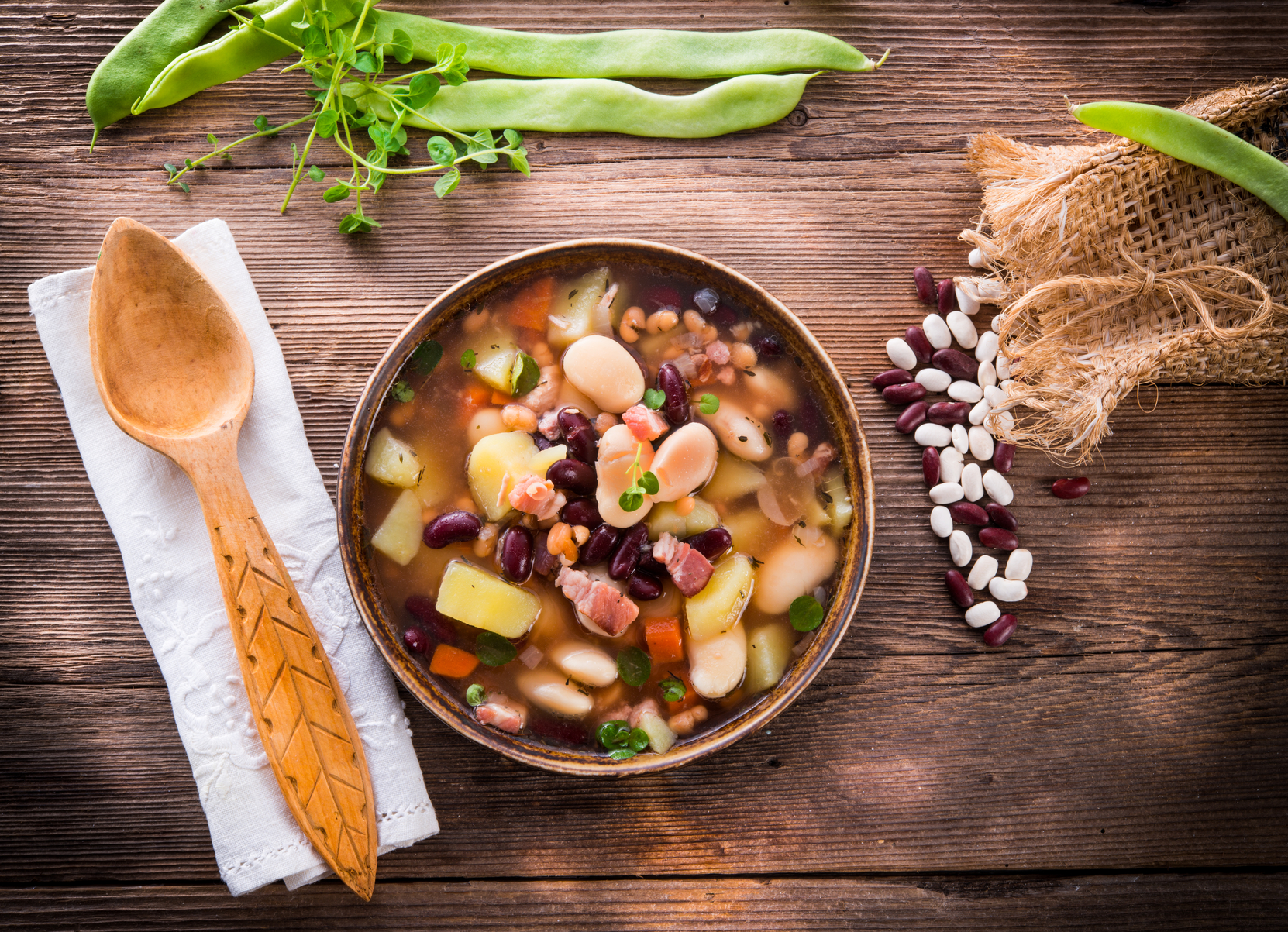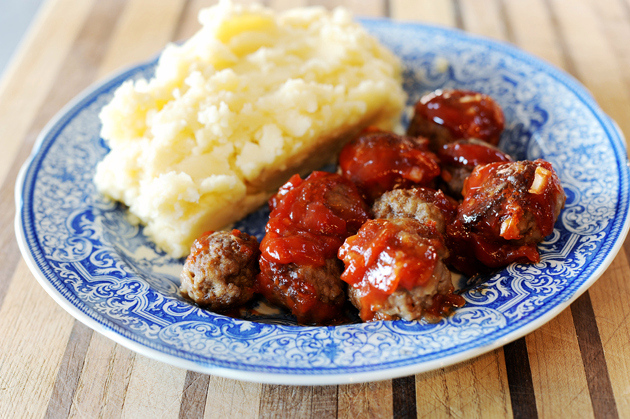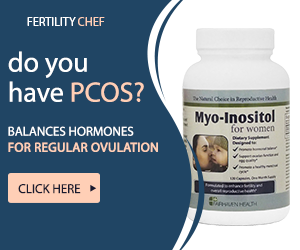PCOS Hair Loss Causes
PCOS hair loss is just one of many symptoms PCOS causes in women, which include irregular or absent menstrual periods, acne, fertility problems, pelvic pain, patchy and discolored skin, and abnormally excessive body and facial hair. Speaking of hair, another problem is that it can cause hair loss in females. This article will discuss 25 ways to prevent hair loss for those with PCOS.
But before we get to that, let’s discuss some other details about PCOS. PCOS is associated with obesity, type 2 diabetes, heart disease, sleep apnea, mood disorders, and endometrial cancer. Its onset is generally due to both genetic and environmental factors; one is at higher risk if they are obese, don’t exercise enough, or have a family history of PCOS. While PCOS doesn’t usually cause death, its related conditions can contribute to a fatality. PCOS currently has no bonafide cure.
Without further ado, here are 25 ways to ameliorate PCOS hair loss.
PCOS Hair Loss Tip #1: Diet

A good diet is important no matter what your circumstances are, but it is even more imperative for individuals with PCOS to watch what they eat. Unfortunately, diet recommendations seem to differ when you look around the internet, but even through the differing information, it’s really quite simple. Limit artificial foods, eat a bevy of greens and vegetables, and balance carbs and proteins.
A low-glycemic diet is best; it is one that emphasizes getting a majority of total carbohydrates from fruit, vegetables, and whole-grain sources. Make sure you are not deficient in Vitamin D, as that can often be one of the culprits.
PCOS Hair Loss Tip #2: Exercise

Exercise helps with reducing hair loss via PCOS for a very simple reason: it reduces testosterone. Cardio is good because it can also counteract weight issues– which like hair loss are common with PCOS– but it has to be done consistently to see positive results.
Resistance training is usually the most effective kind of cardio regimen for women with PCOS. With this being said, vary your routine. Also, make sure to take off one to two days a week from exercising; doing it three to five times a week is essential. Schedule the time on a regular basis so it’ll get done. As an auxiliary exercise, consider trying yoga for PCOS.
PCOS Hair Loss Tip #3: Reducing Stress

PCOS and stress are not a good combination. Like many of the other items on this list, limiting stress also applies to non-sufferers of PCOS. Ultimately, stress in general has been long thought to contribute to hair loss.
Stress leads to an increase of cortisol, a hormone that not only worsens hair loss, but can cause more serious problems including interference with learning and memory; lower bone density and immune function; and an increase in weight, blood pressure, cholesterol, and likelihood of heart disease.
Yoga and exercise, which were aforementioned, can help reduce stress. Likewise, one can try deep breathing. Since hair loss takes a couple of weeks to notice, it is important to be aware of how stressed you’re feeling.
PCOS Hair Loss Tip #4: Sleep and Eat Regularly
Not getting enough sleep can ultimately affect your mood and other functions, as sleep is regulated by two hormones: serotonin and melatonin. When these two hormones are out of balance, other hormones are affected as well. Getting enough sleep is also be an important factor for losing weight with PCOS.
Eating regularly keeps your blood sugar stable, which likewise keeps hormones from being subjected to lows and highs. Of course, do not overeat, but do not miss meals if you can help it.
Ultimately, if your hormones are not in a state of flux, you will notice that symptoms will be lessened– including hair loss.
Hair Loss Tip #5: Taking Care of Your Hair

There are many different ways of caring for hair that harm it for PCOS sufferers. For example, pulling hair back can lead to aggravation and hair loss, especially if one regularly transitions between different styles. Perms, dying, and bleach should be out of the question.
Limit the number of products that you use, especially those containing alcohol or sulfate, as they can deprive your hair of its health, natural growth, and essential oils. It is a good idea to experiment with how often you wash your hair; eventually, your hair will produce less oil as you wash it less.
Using a shampoo that contains organic ingredients to remove DHT (dihydrotestosterone) residue is also advisable. DHT, a derivative of testosterone, contributes to baldness.
PCOS Hair Loss Tip #6: Supplements

Although no supplement will completely ameliorate PCOS hair loss, one can help. Saw palmetto, which is produced by many different brands, helps suppress testosterone levels. 320 milligrams daily for six weeks– or however long issues persist– is a viable option. It should not be taken when pregnant or nursing.
Seven to nine milligrams of biotin can help with hair growth. 16 ounces of spearmint tea a day has been known to reduce testosterone and balance other hormones. N-acetyl Cysteine has been shown to reduce testosterone and improve insulin resistance in women with PCOS. Of course, this is not exhaustive– other supplements can be effective as well.
Hair Loss Tip #7: Jojoba Oil

Most topical treatments are not effective for PCOS– they are typically ineffective at targeting the hair follicle– but jojoba oil can help. It can provide improvement to hair quality, prevent hair loss, and even help hair regrow.
It can be incorporated into your shower routine. Before going into the shower, warm about 1 tablespoon of jojoba oil and massage it into your scalp. Wash it out of your hair as you would with shampoo.
PCOS Hair Loss Tip #8: Reduce Toxins

Unfortunately, toxins from the environment are aplenty, especially if one lives in a big city; these toxins can interfere with normal hormone functioning. This hormonal imbalance has many consequences, including hair loss.
A big part of avoiding toxins lies in one’s diet. Try to consume organic products, for starters; don’t eat farmed fish; and avoid artificial and processed foods. Also, consider using all-natural cleaning products. These are things you can control, unlike external factors like pollution.
Hair Loss Tip #9: Get Your Thyroid Checked

Thyroid issues can mirror or compound PCOS issues; having hypothyroidism along with PCOS is quite common. Get checked by a doctor regularly.
PCOS Hair Loss Tip #10: Finasteride

You want to be careful about taking prescription drugs, but many are effective in treating the hair loss associated with PCOS. For example, there is the drug Finasteride; it blocks an enzyme that converts testosterone to its more active form, which normally leads to hair loss. Essentially, by not allowing testosterone to take over, any given woman doesn’t experience significant hair loss.
Hair Loss Tip #11: Birth Control Pills

Birth control pills, also known as oral contraceptives, can in fact be used to prevent pregnancy for those with PCOS. Even if one isn’t pregnant however, birth control pills can help in that they increase two female hormones: estrogen and progestin. (Both are naturally occurring hormones in females.)
In addition to reducing hair loss, they have the benefit of making menstrual periods more regular and reducing the level of androgens produced by the ovaries. They can also decrease acne and the likelihood of onset of a variety of cancers.
Remember to ask your doctor about the side effects of any drug, including an oral contraceptive.
PCOS Hair Loss Tip #12: Insulin-Sensitizing Agents

As aforementioned, women with PCOS often have insulin problems. Insulin-sensitizing agents are medications that make one’s body more receptive to insulin, in turn keeping glucose levels in balance. If not checked, diabetes and other maladies can result.
Other benefits of insulin-sensitizing agents include: the clearing of acne and reduction of unwanted hair growth; the growth of scalp hair; weight loss; lower cholesterol levels;
more regular periods; and the reduction of infertility commonly associated with PCOS.
Regular ovulation should occur within four to six months of taking a medication. A common medication is Metformin.
Hair Loss Tip #13: Anti-androgens

Although anti-androgens usually don’t affect hair growth, they can help with other issues related to PCOS. Androgens, while present in males and females, are hormones that produce male traits and mimic male reproductive activity. By reducing androgen levels, one can reduce excess hair growth and clear acne.
Anti-androgens are usually taken along with birth control, as anti-androgens can cause birth defects. Take note that no anti-androgen has been approved by the FDA for the treatment of PCOS.
PCOS Hair Loss Tip #14: Hair Transplants

Although it doesn’t address the root of the problem– namely high testosterone levels– hair transplants can be helpful for many women in that they combat male pattern baldness. Transplants allow one to combat a receding hair line or hair loss on the top of one’s head.
With transplants, follicles of hair are taken from places where there is healthy hair growth and transplanted to places where hair growth is thinning. If your entire head is experiencing hair thinning or hair loss, finding donors can be tricky.
Do understand that hair implants can be expensive; a typical graft of hair costs $5 to $7, and usually a doctor won’t bother with less than 500 to 700 grafts.
Hair Loss Tip #15: Apple Cider Vinegar and Baking Soda

Unlike hair transplants, using apple cider and vinegar is a very inexpensive way to improve hair health. It can be applied on top of the head, and can be used to prevent hair from thinning. (Unfortunately, it doesn’t help grow new hair.)
One can also drink the solution, starting with about two teaspoons a day mixed in water, and have it in the morning before meals. Eventually, increasing to two tablespoons two to three times a day is not a bad idea. If it’s too strong for you, mix with orange juice or another kind of juice that masks the flavor.
PCOS Hair Loss Tip #16: Cut Back on Meat

Although this could come under the banner of diet, it warrants a category on its own because becoming vegetarian is often thought of as a lifestyle choice, rather than one that is dietary.
Eating meat, for a variety of reasons, can lead to hormonal imbalances. One prime reason why is that many the animals of many meat products were injected with hormones of their own during their lifetimes; these hormones are passed onto consumers.
Japanese researchers ultimately found that eating meat led to excessive sebum production in the scalp. Sebum is what lubricates hair, but it also creates DHT, which leads to hair loss. The Japanese researchers came to the conclusion that the intake of animal fat leads to increased sebum production in many.
Hair Loss Tip #17: Don’t Smoke

Although it may sound obvious, smoking with PCOS is a horrible idea. First of all, smoking is just horrible for your health– it is linked to over 50 different diseases including lung cancer and heart disease. Secondly, studies have shown that male pattern baldness and hair loss is linked to smoking behaviors. On the more extreme side of the spectrum, it has been found that those who smoke more than 20 cigarettes a day more than double their risk of having moderate to severe hair loss than those who never smoke.
Ultimately, your androgen levels are higher if you smoke; remember, high androgen levels can lead to unwanted symptoms for females. Smoking is an expensive and unhealthy habit that should be avoided, regardless of whether you are currently experiencing PCOS or another malady.
PCOS Hair Loss Tip #18: Fish Oil

Although technically a supplement, fish oil is good for uses outside of PCOS, and it is a good supplement to start taking at any age. Fish oil is rife with omega-3 fatty acids, which help improve insulin sensitivity and reduce androgens. The American Journal of Clinical Nutrition published a study which indicated that omega-3 fatty acids can improve the symptoms of PCOS by putting androgen levels into balance. Thus, like not smoking and taking anti-androgens, this is another way to avoid an influx of androgens.
Most people know about fish oil’s cognitive benefits, but taking fish oil supplements can also help reduce body fat, decrease inflammation, and fight against chronic disease. It is not dangerous to take multiple fish oil capsules a day.
Hair Loss Tip #19: Biotin

Quite simply, biotin encourages hair and scalp health. It does this by improving glucose tolerance in females; many women with PCOS also have impaired glucose tolerance (IGT).
In studies done on rats by Tohoku University in Japan, it was shown that high amounts of biotin in supplement form helped rats to significantly reduce their IGT. The researchers also documented that the rats taking in the highest amount of biotin in supplement form shed weight despite an increase in food intake.
Not all women are deficient in biotin, but many are. In addition to scalp hair restoration, biotin has been known to improve the control of blood sugar and aid in insulin production; reduce triglycerides and the risk of cardiovascular disease; promote weight loss; and for pregnant women, reduce the risk of birth defects. Smoking cigarettes, mentioned earlier in this list, causes the loss of biotin; if one smokes, taking supplements can help restore a loss of biotin.
PCOS Hair Loss Tip #20: MSM

Methylsulfonylmethane, known as MSM, is a naturally occurring chemical often used to reduce pain and swelling in the joints. MSM is essential for hair growth, as it both aids in producing the protein keratin (which provides structure for nails, skin, and hair), and acts to strengthen hair follicles.
One study found that everyone supplemented with MSM demonstrated a reduction in hair loss, along with increased growth in only a period of six weeks. Many physicians also recommend MSM because of the purported fact that it helps build collagen, which keeps skin and hair supple. Collagen deficiency can lead to a number of maladies, such as scurvy.
All in all, MSM is probably a good thing to take just for the fact that it helps with exercise and bodybuilding– it helps repair your muscles. Its uses for hair growth are disputed by some, but as aforementioned, it has been proven to work in many clinical settings.
Hair Loss Tip #21: Rosemary Essential Oil

Rosemary essential oil is great for increasing circulation to the scalp. This increase in circulation is helpful in that it rejuvenates hair follicles. It can be used much like the apple cider vinegar and baking soda solution mentioned earlier in this article in that you can apply it to the head– or in the shower. (You won’t want to drink it obviously, but it sure smells a whole lot better than apple cider vinegar.)
For the shower, use two drops of oil for every ounce of conditioner or shampoo used.There are also ways to steep rosemary leaves in water in order to create your own shampoo concoction.
If you choose to massage the rosemary in, you can add two drops of rosemary oil for every ounce of a carrier oil. After three minutes of massage, you can wash or wipe your head of the oil. Hot oil treatments can be done as well, but they involve a bit more effort and preparation than the other two options.
PCOS Hair Loss Tip #22: Avoiding Hair Products Containing Toxic Chemicals

Although it was mentioned that hair products containing alcohol and sulfate should be avoided at all costs, there are additional hair care product ingredients that are toxic.
For example, parabens– commonly used as preservatives in shampoos and conditioners– have been shown to disrupt hormone function. Phthalates act as softeners in care products, such as cosmetics and shampoo, and they have been shown to tamper with hormones; they also cause reproductive and neurological damage.
The list goes on and on: formaldehyde, fragrance, dioxane, phenol, acrylamide, proplene glycol. Remember that many of these ingredients are in non-hair care products, and they are just as harmful. Buy natural and organic care products as much as possible.
Hair Loss Tip #23: Comfortable Hairstyles

As aforementioned, certain hairstyles can lead to the loss of hair, which is unfortunate for those with PCOS. For example, cornrows or a bun might look good in the short-term, but in the long-term, they may lead to a serious loss of hair. The same goes for wearing your hair up tightly in any fashion, using rollers too often, braids, and hair extensions.
The technical term for this phenomenon is traction alopecia. The science behind it is that when hair is subjected to excessive or prolonged tension, the hair shaft begins to be pulled, damaging the follicle of the hair. Traction alopecia is usually curable, and it is most common amongst women.
Obviously, with PCOS, you want to avoid these hairstyles or habits in the first place, as you have hair loss working against you.
PCOS Hair Loss Tip #24: Crash Diets and Extreme Weight Loss

With crash diets and extreme weight loss, you are likely not only shedding pounds; you’re very likely shedding hair. The hair loss probably won’t be immediately evident– it may only take three to six months to notice any effects– but it will be shocking when it does happen. It typically only happens to individuals who lose 15 or more pounds.
To avoid hair loss from weight loss, try to not change your diet too drastically, and try to limit weight loss to two pounds a week. Make sure you’re getting enough protein, calories, and nutrients as a whole. The condition of losing weight from hair loss is typically known as telogen effluvium.
Hair Loss Tip #25: Making Sure You Don’t Have Other Medical Conditions

Although hair loss is common for women with PCOS, there is the possibility that another condition is masking it. For example, scalp psoriasis can cause the shedding of hair, and for many it can be difficult to treat.
Alopecia areata or alopecia universalis both cause hair loss, as they are autoimmune diseases that attack hair follicles. Folliculitis is the inflammation of hair follicles; ringworm can cause hair to fall out; and seborrheic dermatitis is a condition that causes temporary hair loss.
Ultimately, it is important to know what is affecting you, which can be achieved best by consulting medical assistance.
https://www.aad.org/dermatology-a-to-z/diseases-and-treatments/e—h/hair-loss/who-gets-causes





